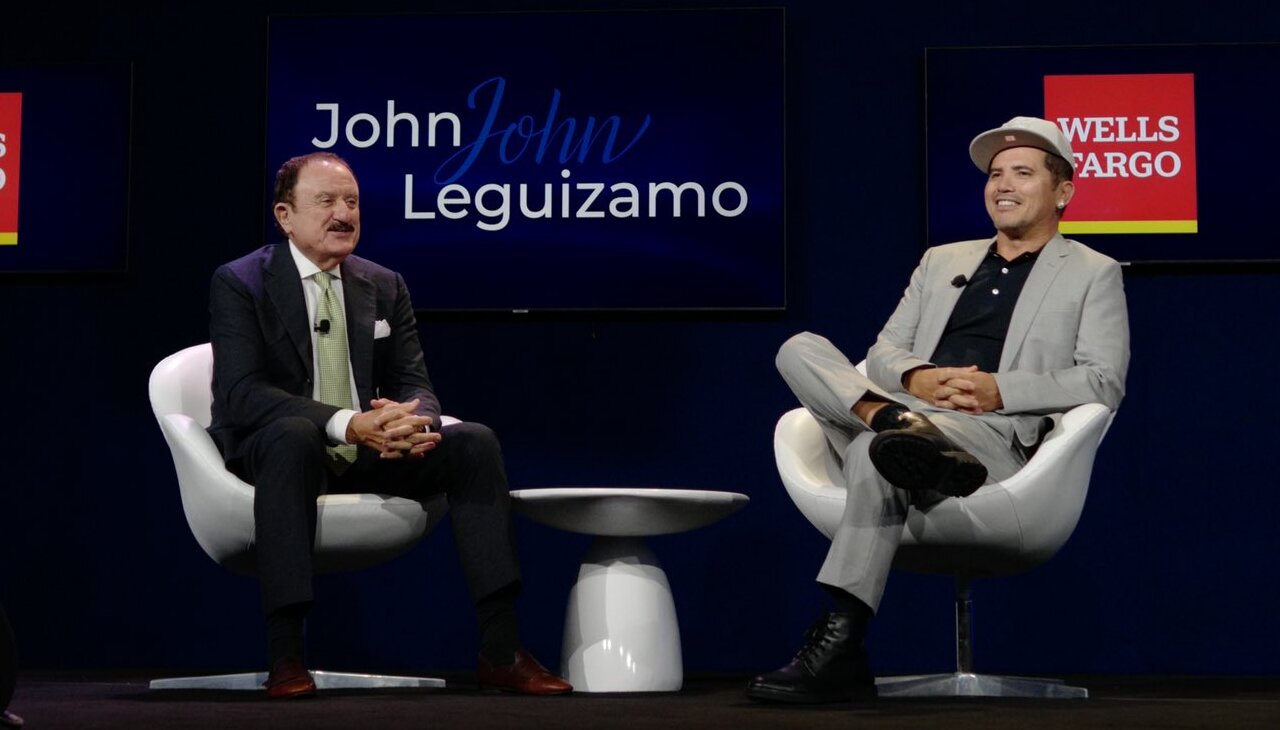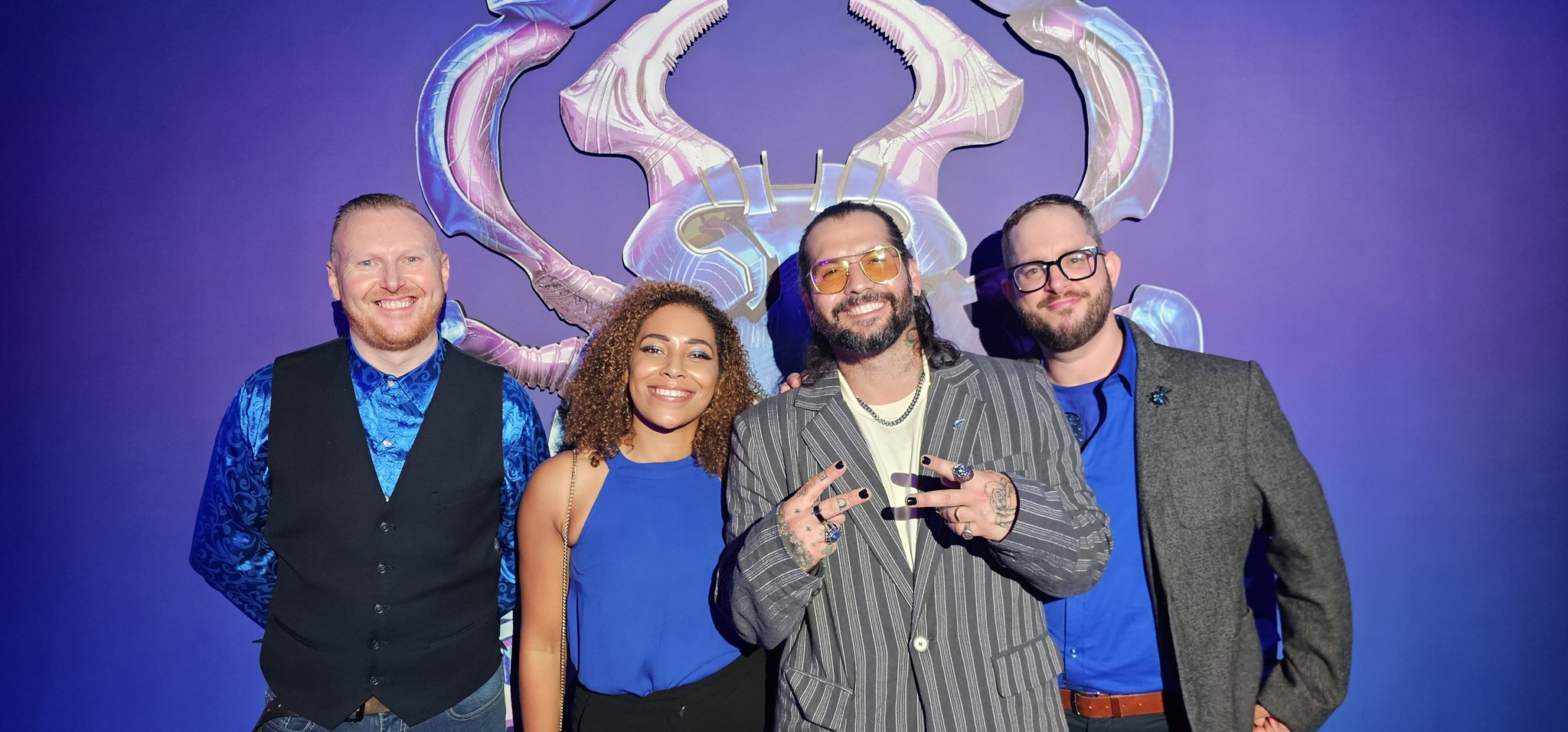
An anatomy of the personal and political: NPR’s Mandalit del Barco talks Bardo and her interview with Alejandro G. Iñárritu
The NPR arts correspondent and reporter spoke to AL DÍA about the Oscar-winning Mexican Director’s new film.
The latest film from nine-time Academy Award and five-time winning Mexican Director Alejandro González Iñárritu is the visually, and sonically captivating, and hypnotic Bardo, False Chronicle of a Handful of Truths, now streaming on Netflix. The film is his most personal, and arguably most ambitious piece of work to date.
It is Iñárritu’s first feature film since 2015’s 12-time Academy Award nominated The Revenant, which won for Best Director, Best Cinematography, and Best Actor for Leonardo DiCaprio. It was his second consecutive Best Director award, his first was for 2014’s Birdman or (The Unexpected Virtue of Ignorance).
Coming off The Revenant, the Mexico City-born Iñárritu was on top of the Hollywood and filmmaking world after nearly two decades of critically-acclaimed and box office success with his first six films prior to Bardo — his seventh feature — that include Amores Perros, 21 Grams, Babel, and Biutiful.
But Bardo is separate from the others. It is semi-autobiographical, a docu-fiction, and according to the many interviews he has done on the press tour, somewhat of a reflection of himself, his duality as a Mexican immigrant with roots laid in the U.S., aging, Mexican nationalism, and the Bardo — the Tibetan and Buddhist state between life, death, and rebirth.
In an interview with NPR’s art correspondent and reporter, Mandalit Del Barco, she spoke to AL DÍA about her recent interview with Iñárritu and his longtime friend and collaborator, Martin Hernandez, about the many sounds, and atmospherics of Bardo, as well as the universal themes behind the film.
According to Hernandez in the interview with Del Barco, the film “explores the life of a Mexican journalist living in Los Angeles who travels home and finds himself steeped in memories from his past. The film takes viewers on a sometimes surreal tour that mines both the filmmaker's and Mexico's past”
It is a film that challenges the viewer to stick with its many captivating dream-state visuals as you strap in for the ride into Iñárritu’s creative mind, and for some might require a few rewatches to fully grasp the entirety of the film. Del Barco called it a “beautifully made movie, and not speaking not as a critic, but just as a film lover.” “I read this was one of the most challenging films for him to do. I could see why, because it was a very personal story for him, and at the same time, a very universal story for anybody who's ever had questions about their identity, and living in what he calls the Bardo, the in-between state of being neither here nor there. For him as an immigrant from Mexico, I read that it was tough there to be a filmmaker when he started. The industry wasn't as built up as it is now.”
As an audio storyteller and someone who works in radio, Del Barco has always appreciated sound and sound in film, which was the center of her conversation with the director and his longtime sound designer who has worked with Iñárritu on all of his films.
She alluded to a quote from her interview in which Iñárritu says — “This sound, in a way, has a quality that hits you in the body. And I like the immediacy of audio. That's why it's called audiovisual medium. Audio is first. Audio, I think, is 75% of the film experience.”
Del Barco offered her own thoughts on the perspective to AL DÍA, which also offered a glimpse into Iñárritu’s pre-director days.
“The story, his aesthetics are very rooted in sound because he used to be a DJ in Mexico City. He appreciates it and it's throughout all his films. He's very conscious of the sound. If you take away the soundscape, or if the sound is terrible in a movie, it totally changes it,” she said. “You can have as many visually stunning elements as you want but if the sound is off, then it ruins it. It should be seamless where the sound enhances the story. [Hernandez] told me that if it works, the audience shouldn't even notice the sound, it should just be part of the whole experience.”
RELATED CONTENT
As featured in Del Barco’s interview, the director co-wrote a lot of the soundtrack in addition to recording many of the film’s sounds, for instance in a sequence where Mexican migrants are crossing the desert and heading north into Arizona. Hernandez recorded many of the real-life sounds such as the busy streets of Mexico City, and the underlying conversations heard throughout.
“You hear people opening their shops, the shopkeeper sweeping the sidewalk, people and traffic going. It's so many sounds that add up to this whole cityscape that are different from, for example, L.A. I'm a person who notices sound wherever I go, because that's part of my work and my joy,” she said.
Del Barco also spoke more about the intention of sound in even the most subtle ways that viewers might not notice on the first watch.
“There's times where the sound is supposed to be a bit off. This movie is very surreal so the sound also was surreal,” she said. “You can see this film again, and see, and hear different things, which is so interesting as a film. Not everybody is as concerned about creating the subtle things.”
The idea of a first-class immigrant also comes into play in the film, as Silverio Gama is an acclaimed journalist and documentary filmmaker now living in the U.S.
There’s a scene where the protagonist, Silverio, played by Spanish-Mexican actor, Daniel Giménez Cacho — who bares a striking resemblance to the director himself — is at the dining table with his son where he refers to himself and the family as “first-class immigrants.” Iñárritu, who is also the screenwriter, acknowledges this and perhaps his own privilege and distinction between he and other Mexican immigrants in the U.S.
Iñárritu is also not someone that is new to the critics and their perception of him and his films. Throughout his career, his films have been criticized as being pretentious. That also gets hinted at in Bardo as potentially another form of self-reflection.
“It's a very clever way of having his own internal dialogues between what he's experienced as a filmmaker, and then this character who is a journalist. I identified with parts of that character because you're trying to tell a story and be creative, and somebody might not like that, but you just have to be true to yourself. I think that's what he was trying to do. It was almost like he knew that the reviewers were going to say certain things about this film,” said Del Barco.
Bardo, False Chronicle of a Handful of Truths is now streaming on Netflix. You can listen to Del Barco’s interview with the director himself and his longtime collaborator here.











LEAVE A COMMENT:
Join the discussion! Leave a comment.